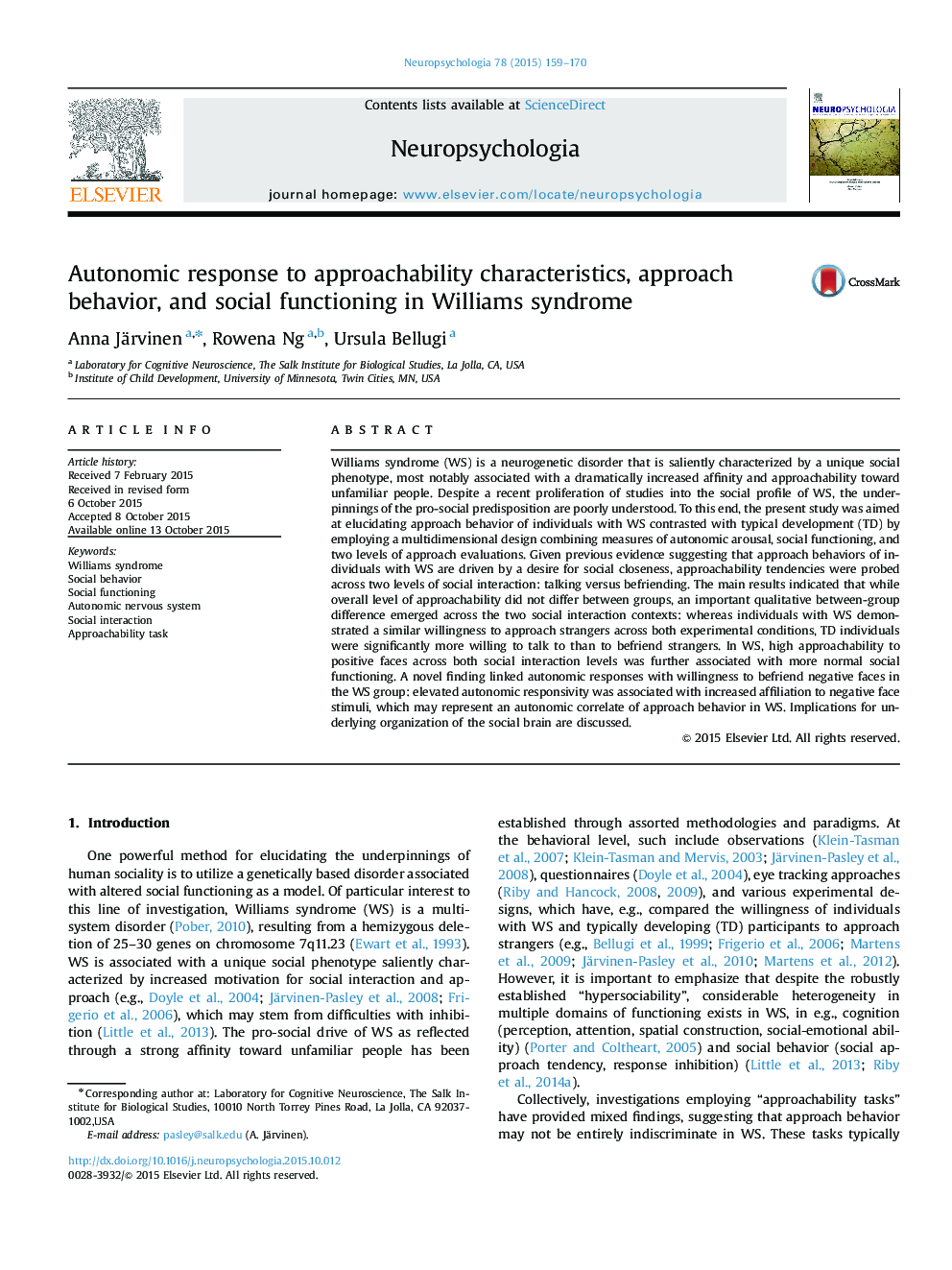| Article ID | Journal | Published Year | Pages | File Type |
|---|---|---|---|---|
| 7319638 | Neuropsychologia | 2015 | 12 Pages |
Abstract
Williams syndrome (WS) is a neurogenetic disorder that is saliently characterized by a unique social phenotype, most notably associated with a dramatically increased affinity and approachability toward unfamiliar people. Despite a recent proliferation of studies into the social profile of WS, the underpinnings of the pro-social predisposition are poorly understood. To this end, the present study was aimed at elucidating approach behavior of individuals with WS contrasted with typical development (TD) by employing a multidimensional design combining measures of autonomic arousal, social functioning, and two levels of approach evaluations. Given previous evidence suggesting that approach behaviors of individuals with WS are driven by a desire for social closeness, approachability tendencies were probed across two levels of social interaction: talking versus befriending. The main results indicated that while overall level of approachability did not differ between groups, an important qualitative between-group difference emerged across the two social interaction contexts: whereas individuals with WS demonstrated a similar willingness to approach strangers across both experimental conditions, TD individuals were significantly more willing to talk to than to befriend strangers. In WS, high approachability to positive faces across both social interaction levels was further associated with more normal social functioning. A novel finding linked autonomic responses with willingness to befriend negative faces in the WS group: elevated autonomic responsivity was associated with increased affiliation to negative face stimuli, which may represent an autonomic correlate of approach behavior in WS. Implications for underlying organization of the social brain are discussed.
Keywords
Related Topics
Life Sciences
Neuroscience
Behavioral Neuroscience
Authors
Anna Järvinen, Rowena Ng, Ursula Bellugi,
